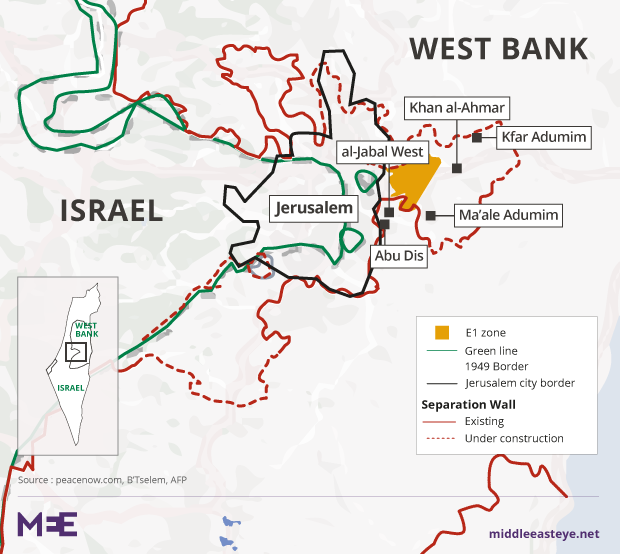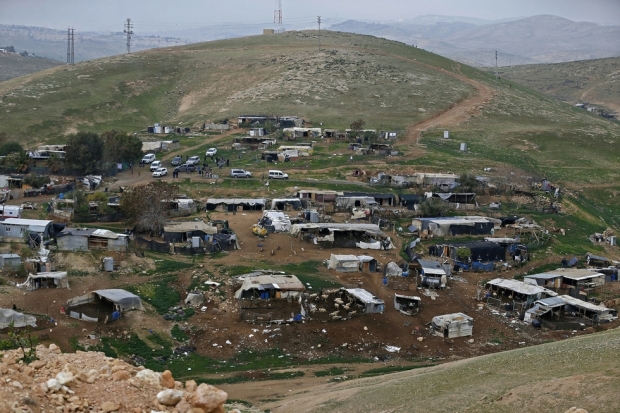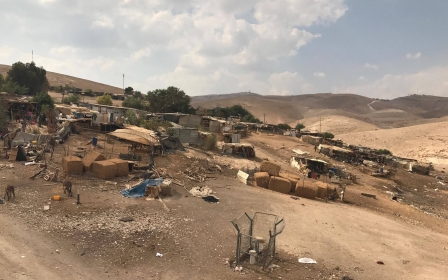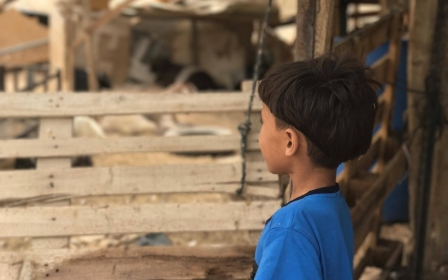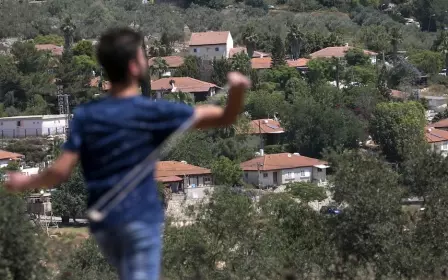Israel approves 2,000 new illegal settlement homes in West Bank
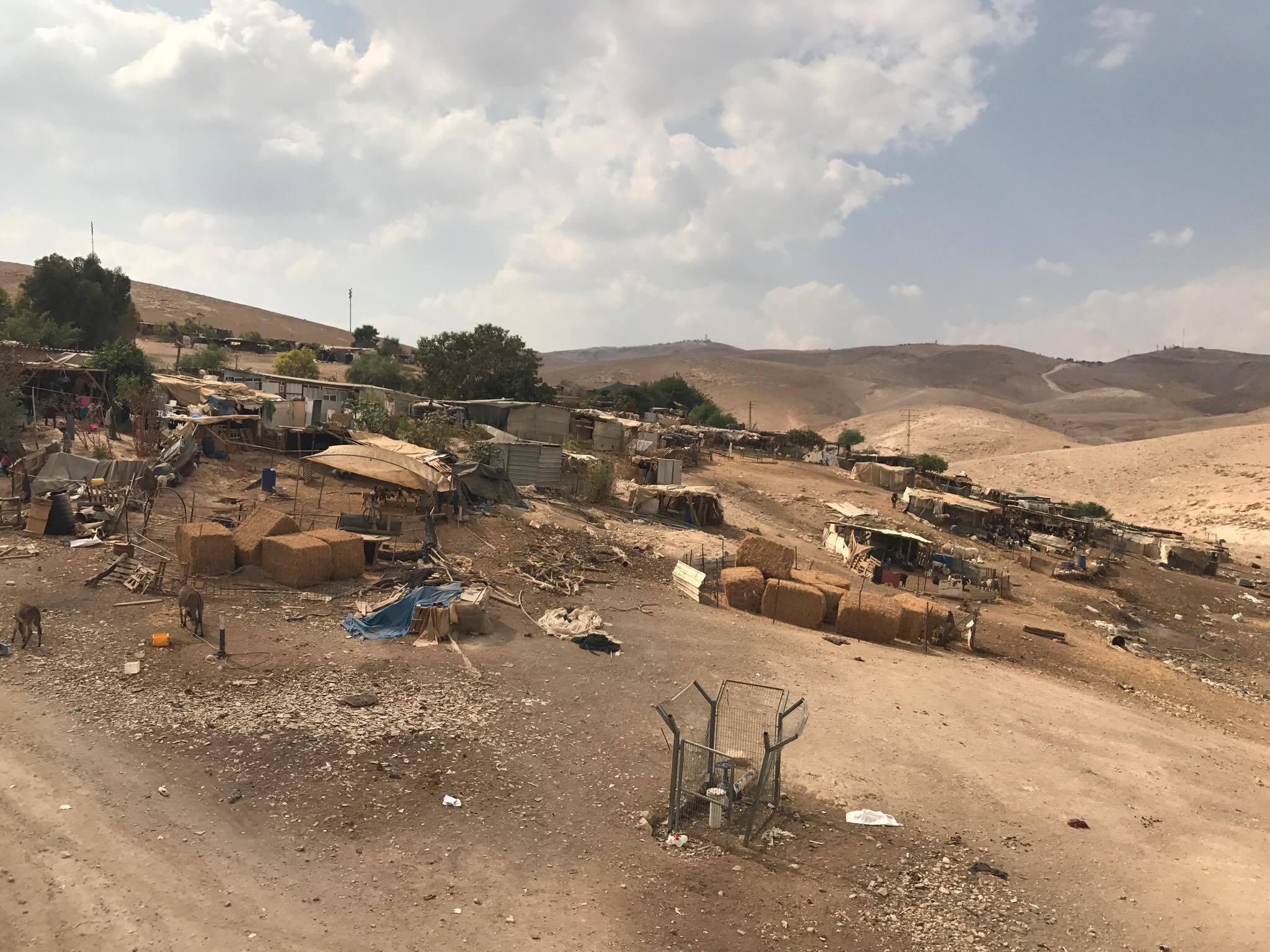
Israeli authorities on Wednesday approved construction of nearly 2,000 new illegal settlement homes in the occupied West Bank, including 92 a kilometre from a Bedouin village last week slated for demolition.
The decision by Israel’s Civil Administration will allow 92 new homes in Kfar Adumim, near the Bedouin village of Khan al-Ahmar, whose demolition was approved by the Israeli High Court last week.
Local Bedouin leaders have condemned the development, which will be called Nofei Bereishit and will connect other illegal settlements with a planned education campus.
Aid Khamis, the spokesperson for Khan al-Ahmar, said the plans confirmed years of Israeli lies that this area was a "military zone".
"The settlers used to come here all the time and taunt us by saying they will take this land and build on top of us," Khamis told Middle East Eye.
"Settlers from Maale Adumim want this settlement to expand and build a belt of settlements that surround Jerusalem.
"We have been here for dozens of years, and we know that this eviction is part of the plan to create greater Jerusalem and remove all the Bedouin communities who are obstacles to the Israeli plans."
Last week, an Israeli court approved plans to demolish the Khan al-Ahmar village.
The plans were drawn up amid widespread condemnation and pleas by numerous European governments and senior US politicians to reconsider.
Among the European politicians who vowed to help the Jahalin tribe included Alistair Burt, the UK Middle East minister, according to Bedouin leaders.
On Wednesday, he told AFP: "We are very concerned about the impact of the court case last week and the imminent demolition."
He warned that any forced relocation "could constitute forcible transfer of people as far as the United Nations is concerned."
Forcible transfer is considered a violation of the Geneva Conventions.
Burt said international leaders were still seekingan alternative to the demolition, but stopped short of threatening any direct measures against the Israeli government.
"I will be wanting to seek to persuade Israeli authorities."
The Jahalin tribe is one of the largest Bedouin communities in the West Bank. The tribe has lived in the area since Israel expelled them from the Negev Desert following Israel declaring its independence in 1948.
The Israeli government intends to move the Bedouins to al-Jabal West, a "relocation" site near a rubbish site in the Palestinian town of Abu Dis.
The Israeli approval of the 2,000 new homes is the first since the US embassy transfer to Jerusalem on 14 May, a move that infuriated Palestinians and intensified protests on the Gaza border, with at least 61 Palestinians killed in clashes with Israeli forces that day.
The government will now have to wait for defence ministry's approval before it can allow developers to bid on the new housing.
Middle East Eye propose une couverture et une analyse indépendantes et incomparables du Moyen-Orient, de l’Afrique du Nord et d’autres régions du monde. Pour en savoir plus sur la reprise de ce contenu et les frais qui s’appliquent, veuillez remplir ce formulaire [en anglais]. Pour en savoir plus sur MEE, cliquez ici [en anglais].


